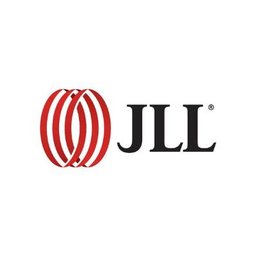Job Opportunities in Costa Rica

September 18, 2024
Concentrix
Pavas
Data Architect
Information Technology
Location
Pavas, Costa Rica
Data Architect Job Description
Job Description Summary
We are seeking an experienced and strategic Data Architect to lead the design, development, and implementation of our data architecture. The ideal candidate will be responsible for defining data management standards, establishing a scalable data infrastructure, and ensuring the organization's data is structured, integrated, and easily accessible. This role requires a deep understanding of data modeling, database design, and cloud-based data platforms, as well as collaboration with various teams to deliver high-quality, data-driven solutions.
Job Description
Key Responsibilities:
-
Data Architecture Design:
Develop and maintain an enterprise-wide data architecture, aligning with business goals and IT strategies. Design efficient database solutions to store and retrieve data securely. -
Data Modeling & Database Design:
Create and optimize data models (conceptual, logical, and physical) for both transactional and analytical systems. Ensure data accuracy, consistency, and scalability across systems. -
Data Integration & ETL Processes:
Define and implement data integration strategies, including ETL processes to extract, transform, and load data from various sources into centralized databases or data lakes. -
Data Governance:
Establish and enforce data management policies, including data quality, security, and privacy standards. Ensure compliance with relevant data regulations (GDPR, CCPA, etc.). -
Collaboration with Stakeholders:
Work closely with business analysts, data engineers, data scientists, and other stakeholders to translate business requirements into data architecture solutions. Provide guidance on data-related technical issues and best practices. -
Technology Evaluation:
Evaluate and recommend appropriate database and data storage technologies, ensuring they align with organizational needs. Stay current with emerging trends in data architecture and big data technologies. -
Data Security & Privacy:
Design and implement secure data management systems that ensure data integrity, confidentiality, and protection against unauthorized access. -
Performance Optimization:
Monitor and optimize the performance of data systems, identifying areas for improvement and ensuring systems meet performance requirements. -
Documentation & Standards:
Maintain thorough documentation of data architecture designs, models, and processes. Define and enforce data standards and best practices across the organization.
Requirements:
-
Education:
Bachelor’s or Master’s degree in Computer Science, Information Technology, Data Science, or a related field. -
Experience:
- Minimum of 5 years of experience in data architecture, database design, or data engineering roles.
- Proven experience with data modeling, database management systems (RDBMS, No SQL), and data warehousing solutions.
-
Skills & Expertise:
- Expertise in data modeling techniques (ERD, UML) and data management tools (e.g., ER/Studio, Erwin).
- Hands-on experience with cloud platforms and cloud-native database services.
- Proficiency with SQL, No SQL, and data integration technologies (ETL tools, APIs).
- Knowledge of big data technologies (Hadoop, Spark, Kafka) is a plus.
- Strong understanding of data governance frameworks and best practices.
- Familiarity with BI tools (e.g., Power BI, Tableau) and data analytics frameworks.
-
Preferred Qualifications:
- Experience with machine learning models and AI-driven data platforms.
- Certification in cloud-based data services (e.g., AWS Certified Data Analytics, Microsoft Azure Data Engineer).
CRI Work-at-Home Language Requirements:
Time Type:
Full time If you are a California resident, by submitting your information, you acknowledge that you have read and have access to the Job Applicant Privacy Notice for California Residents
We regret to inform you that this job opportunity is no longer available
Latest Job Opportunities

October 19, 2024
Edwards Lifesciences
Engineer II, Facilities (Building Maintenance)
OTHER
View Details


October 19, 2024
Johnson Controls
Building Controls Applications Engineer II - Major Projects
San José
View Details

Similar Jobs






New Jobs from This Company

October 18, 2024
Concentrix
Fashion Advisor (New Account - Grads Only)
الجيزة
FULL TIME
View Details
October 17, 2024
Concentrix
Customer Service Representative (Launching Account)
القاهرة
FULL TIME
View Details

